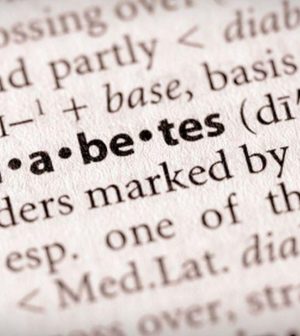- Could Your Grocery Store Meat Be Causing Recurring UTIs?
- Are You Making This Expensive Thermostat Error This Winter?
- Recognizing the Signs of Hypothyroidism
- 10 Strategies to Overcome Insomnia
- Could Artificial Sweeteners Be Aging the Brain Faster?
- Techniques for Soothing Your Nervous System
- Does the Water in Your House Smell Funny? Here’s Why
- Can a Daily Dose of Apple Cider Vinegar Actually Aid Weight Loss?
- 6 Health Beverages That Can Actually Spike Your Blood Sugar
- Treatment Options for Social Anxiety Disorder
Inhaled Insulin Could Help Folks With Type 1 Diabetes Avoid Needles

Inhaled insulin could be a better option than injections or pumps for some patients with type 1 diabetes, a new clinical trial shows.
Patients using inhaled insulin (Afrezza) plus long-lasting insulin degludec injections had better control over their blood sugar than those assigned to receive usual care, researchers report.
About 21% of those on inhaled insulin had a hemoglobin A1C improvement of greater than 0.5% during the study, compared with 5% of those on standard care, results show.
The clinical trial’s results “will impact diabetes management by providing healthcare providers and patients with an alternative insulin delivery method,” said lead researcher Dr. Irl Hirsch, chair of diabetes treatment and teaching with the University of Washington in St. Louis.
Inhaled insulin comes in powder form and is taken by mouth using a special inhaler, the National Institutes of Health (NIH) explained. It’s typically used at the beginning of each meal.
For the study, 123 adults with type 1 diabetes were randomly assigned to take either inhaled insulin plus degludec insulin, or just stick with their usual multiple daily insulin injections or automated insulin pump.
The trial lasted more than 16 weeks at 19 hospitals in the United States.
People with diabetes have an A1C level of 6.5% or higher, according to the NIH.
Among participants who had an A1C level of 7% or higher, about 21% of those on inhaled insulin dipped below 7% during the study. No participants receiving standard care achieved this goal.
Further, 19% of participants who switched from using an automated delivery system to inhaled insulin had an A1C improvement greater than 0.5%, results show.
It also proved a popular choice. More than half of study participants wanted to keep using inhaled insulin after the trial wrapped up, researchers said.
However, inhaled insulin wasn’t for everyone. About 26% of patients in the inhaled insulin group had their A1C levels get worse, compared with 3% of those sticking to their standard care.
The trial results were reported at the American Diabetes Association’s annual meeting in Orlando, Fla. Findings presented at medical meetings should be considered preliminary until published in a peer-reviewed journal.
More information
The Cleveland Clinic has more about inhaled insulin.
SOURCE: American Diabetes Association, news release, June 22, 2024
Source: HealthDay
Copyright © 2026 HealthDay. All rights reserved.










